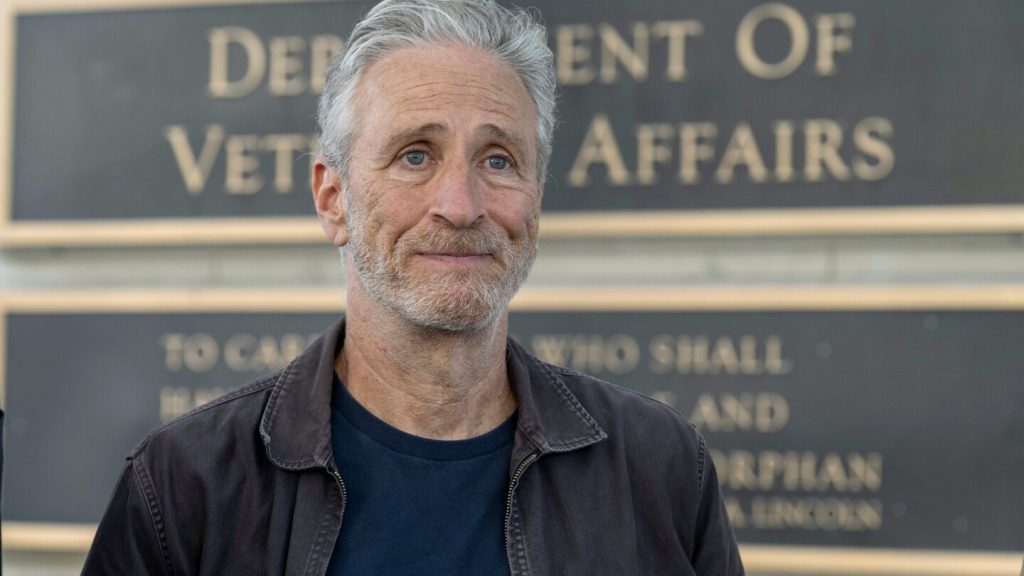The first U.S. troops to deploy after the Sept. 11 attacks are suffering from radiation exposure that the government has yet to officially recognize 23 years later. These servicemembers were sent to a former Soviet base in Uzbekistan known as K2, where they launched missions against the Taliban in Afghanistan. Troops found radioactive uranium scattered near bunkers where Soviet troops had stored missiles, leading to health issues such as cancers and kidney problems among the veterans. Despite these medical conditions, exposure from K2 is not covered under a major veterans aid bill signed by President Joe Biden in 2022.
Comedian Jon Stewart, a champion for first responders, is advocating for the recognition and coverage of K2 veterans, who he refers to as the “tip of the spear” in the war on terror. Stewart is pressing the Biden administration for changes to get the K2 veterans fully covered and has called for a meeting between veterans and the Defense Department’s assistant secretary for health affairs. Despite declassified reports showing uranium contamination at the base, the Defense Department has not officially recognized K2 as a location of radiation exposure, leading to delays in providing benefits and healthcare to affected veterans.
Thousands of K2 veterans have reported serious medical conditions linked to radiation exposure, with some even passing away while waiting for their claims to be recognized by the Pentagon and the VA. Radiation levels documented at K2 in 2001 were found to be as much as 40,000 times higher than natural levels, posing significant health risks to the troops stationed there. The VA has approved nearly 12,000 K2 veterans for at least one service-related condition, but the process for recognizing radiation-related illnesses is complex and drawn out, according to veterans’ advocacy groups and specialists in nuclear fusion.
The government has deferred to agencies like the Defense Department and the VA for more information on the situation at K2, stating that further studies and reviews are needed. While the White House has expressed support for providing benefits to veterans harmed by toxic exposures, the recognition of radiation exposure at K2 remains a contentious issue in legislative efforts. Congress has made efforts to obtain and publicize detailed environmental assessments of the base in attempts to pressure the government to acknowledge the toxic exposure faced by K2 veterans.
Despite efforts by lawmakers and veterans’ advocacy groups, the government has pointed to other aspects of expanded care for K2 veterans through the PACT Act and supplemental care provided by the VA. The issue of radiation exposure at K2 remains a sticking point in legislative discussions and was not included in the PACT Act due to it being deemed nonnegotiable by government officials. With ongoing developments in U.S. military presence in countries like Uzbekistan for regional counterterrorism efforts, the plight of K2 veterans continues to be a pressing concern that requires immediate attention and action from the government.


